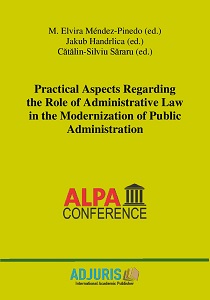Processing of personal data. Case study: a fair balance between the right to information and the right to privacy
Processing of personal data. Case study: a fair balance between the right to information and the right to privacy
Author(s): Mioara Florina Pantea, Camelia Daciana Stoian
Subject(s): Human Rights and Humanitarian Law
Published by: Societatea de Stiinte Juridice si Administrative
Keywords: personal information; public interest information; just balance; administrative law;
Summary/Abstract: All those who seek to achieve the concept of 'effective education', both institutions or governmental authorities that are part of the central or local public administration, educational institutions, teachers, or students, aim at achieving a standard that meets the attributes of quality, objectivity and equity in any level, the only ones who can configure and ensure the development of academic quality in a double sense, from teacher to student, respectively from student to teacher. Application and interpretation of personal data protection legislation has its own role in achieving and maintaining quality by continually correlating with everything involving objectivity and impartiality, the only one that can give a fair balance between the requirements of the European framework in the field and the proof of the quality of being worthy of confidence in the personal development and realization of students through the diligence that has been done to ensure the development of the academic body. The point of view is a plea that underlines the importance of correctly interpreting the scope of Regulation 679/2016 on the protection of individuals with regard to the processing of personal data and on the free movement of such data and why not to over rule the case law of the European Court of Human Rights or the Court of Justice of the European Union, which does not exposeus as representing not just a good practice.
- Page Range: 201-209
- Page Count: 9
- Publication Year: 2019
- Language: English
- Content File-PDF

